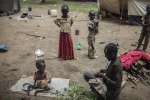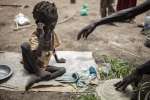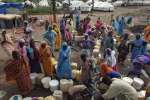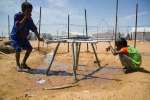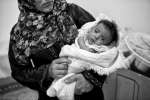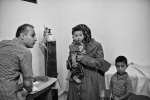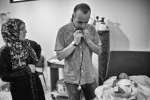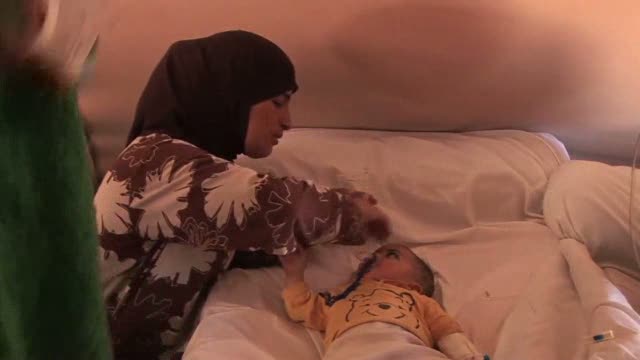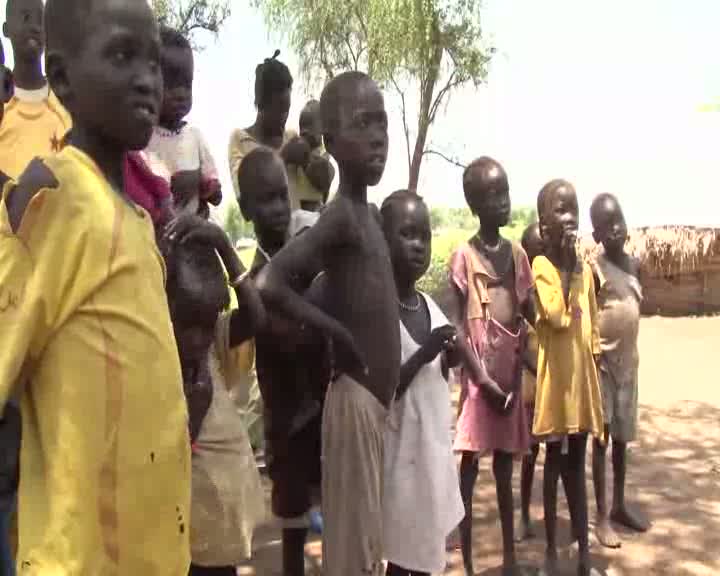A UN safety net for refugees in Africa
News Stories, 29 September 2008

NEW YORK, September 29 (UNHCR) – The UN refugee agency and the United Nations Foundation's "Nothing But Nets" campaign have started a partnership to help eliminate malaria deaths in refugee camps.
The partnership – which aims to provide long-lasting, insecticide-treated bed nets to more than 630,000 refugees living in 27 temporary camps in Sudan, Kenya, Tanzania and Uganda – was announced by former United States President Bill Clinton at the closing plenary session of the Clinton Global Initiative (CGI) annual meeting in New York last Friday.
"This partnership extends a life-saving safety net to some of the world's most vulnerable refugees," said Timothy E. Wirth, President of the United Nations Foundation. "This initiative represents another step toward covering the continent of Africa with anti-malaria bed nets. Malaria is a preventable disease and our growing coalition of UN agencies, faith communities and major companies are determined to reach our goal of eliminating malaria deaths in this generation."
The initiative will mobilize global engagement through Nothing But Nets' partner organizations – including the National Basketball Association, the Union for Reform Judaism, the people of the United Methodist Church as well as supporters of UNHCR's ninemillion.org campaign – to promote awareness about malaria, raise funds to buy the bed nets needed to protect the refugees, and distribute the nets in UNHCR's camps.
More than 275,000 bed nets are needed to protect the refugees living in temporary camps – many of whom have been displaced as a result of the spreading crisis in the Darfur region of western Sudan. With the next rainy season approaching, malaria looms as a major threat to the inhabitants of these refugee camps, which comprise primarily women and their children. Malaria is the largest killer of refugees, and bed nets are the most cost effective way to prevent malaria.
"The rainy season is fast approaching and we must act now to prevent more devastation and loss of life from malaria," said António Guterres, the UN High Commissioner for Refugees. "Nothing But Nets makes it easy for people to get involved and help us save lives. It's simple – send a net, save a life."
One bed net can protect a family of four and lasts for three to five years. Each net costs $10 to purchase, distribute and educate about its proper uses.
Katherine Commale, a seven-year-old member of the United Methodist Church, was on stage at CGI to present a check to UNHCR for $2 million raised from Nothing But Nets' grassroots supporters. Commale has raised nearly $60,000 for the campaign since 2006.
"When my mom and I first learned about kids my age dying from malaria, we were really sad," said Commale. "But I knew I could help. I have gotten more kids in my school, my neighbourhood and around the country involved and make a difference. But we're not done yet."
To date, Nothing But Nets has raised more than $20 million, and has successfully distributed nets across Africa, including Gabon, Chad, Mali and Nigeria. The first Nothing But Nets-UNHCR bed net distribution will take place in Uganda in fall 2008. Nothing But Nets will also distribute bed nets in Côte d'Ivoire and the Central African Republic this year.

















